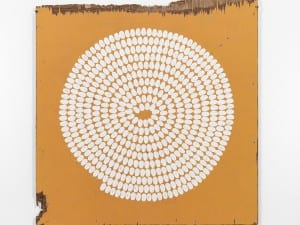Patience Agbabi — talented writer, performer, lecturer, and now mum to one-and-a-half year-old Solomon, is anything but her namesake. Since her first collection, R.A.W., was published in 1995, Patience has made herself a staple in the written and spoken-word communities of poetry.
Contributing to her rise to fame was her collaboration in FO(U)R WOMEN with Adeola Agbebiyi and Dorothea Smart in 1996 and her role in poetry’s first pop group, Atomic Lip, which toured from 1995 until 1998. A tour through the UK and Switzerland called Modern Love, featuring a number of spoken word poets, concluded in 2002. Patience has continued to storm the world with her works in the form of lectures, appearances, and workshops, stopping everywhere from Namibia to the Czech Republic and India. She was also featured by Channel 4’s Litpop series in 1998 and commissioned to write a poem for the Blue Peter National Children’s Poetry Competition in 1999, supported by the BBC.
Not one to take a rest, Patience took part in the Poetry Places scheme run by the Poetry Society – becoming an in-house poet at The Poetry Café in 1999, and moving to London-based tattoo and piercing studio Flamin’ Eight from 1999 until 2000. That year also saw the publication of Transformatrix, the second compilation of Patience’s works.
More recently, her focus has been largely on education. After a busy year of leading workshops and a six-month residency at Oxford Brooks University, Patience came away from the experience knowing that she wanted to teach; two weeks later she received an invitation to do just that. She also wanted to supplement her own education and attained her MA in Creative Writing, the Arts and Education at the University of Sussex in Brighton in 2002. The year she spent at Sussex gave her time off “to be creative,” contact more poets in the writing community, and read books into theory that time had otherwise forced her to neglect.
As a teacher, Patience is also willing to admit to her own growth in writing. In her freshman work, R.A.W., Patience would sit down to write whenever an idea came, but she eventually found that it wasn’t necessary to write down every idea as soon as it came to mind; she now believes that you can create and articulate inspiration on your own. “You’re creating inspiration even when you sleep,” she says, adding that she also learned a lot of inspiration techniques from attending and teaching writing workshops. The knowledge of completing a full book also adds to her inspiration, with the challenge of filling all of the pages driving her forward with themes and ideas.
Giving herself yet another challenge, Patience set herself the almost impossible task of finishing the last third of Transformatrix in a matter of thirteen days, hoping to make her publisher’s deadline. Writing twelve hours a day for thirteen days, she couldn’t even bother to cook meals, and in the doggedly hot days of August she was left to eat mostly apples and carrots; hence the recurring theme of apples in Transformatrix and half-eaten apple on the cover. Though many would find this nearly impossible, she went into those two weeks “primed, like an athlete,” after spending the week before in Cornwall vacationing and gathering ideas. Her famed Seven Sisters, a series of seven sestinas, required a bit longer – after being prompted with the form by a friend, Patience took a year to complete them.
Her latest effort has just been completed, entitled Bloodshot Monochrome. As of late February she has just sent the manuscript off to a publisher, so we’re hoping that sometime in spring 2008 we get another dose of Patience Agbabi’s forceful works. She was also recently commissioned to write a series of six poems for a Lloyd’s initiative on climate change, and has been invited to write a children’s book for ages 2-5. As her son turns two in June, she’s excited to have a critic in-house and looks forward to the new challenge of writing for a younger audience.
Although Patience is perhaps better known for her work in performance poetry, it’s the writing that keeps her going. “Writing is the solitary part,” she explains. “The rush lasts longer” when she’s finished writing than after a performance, adding, “Who needs drugs? When you’re really in the zone and writing quality work, it’s all you need.”
Stephanie Everett




